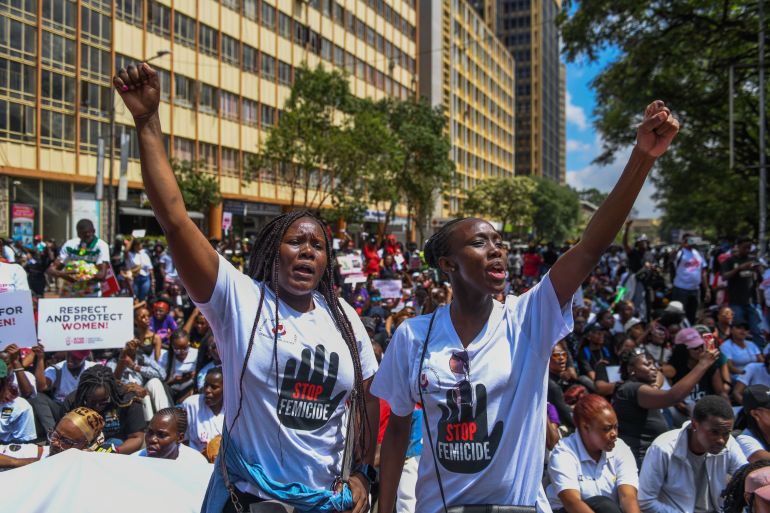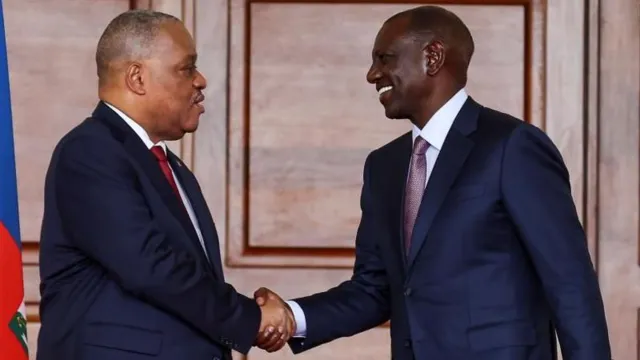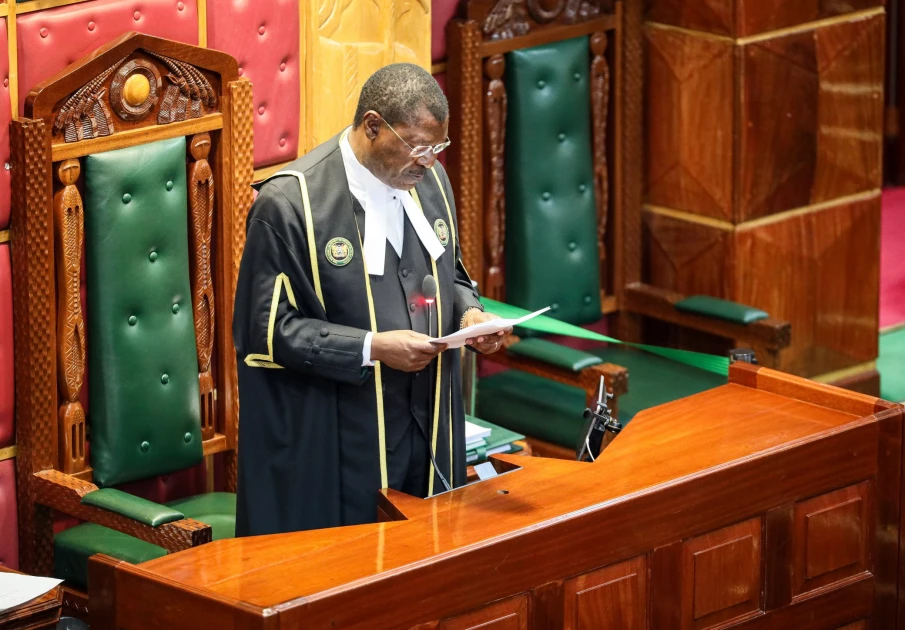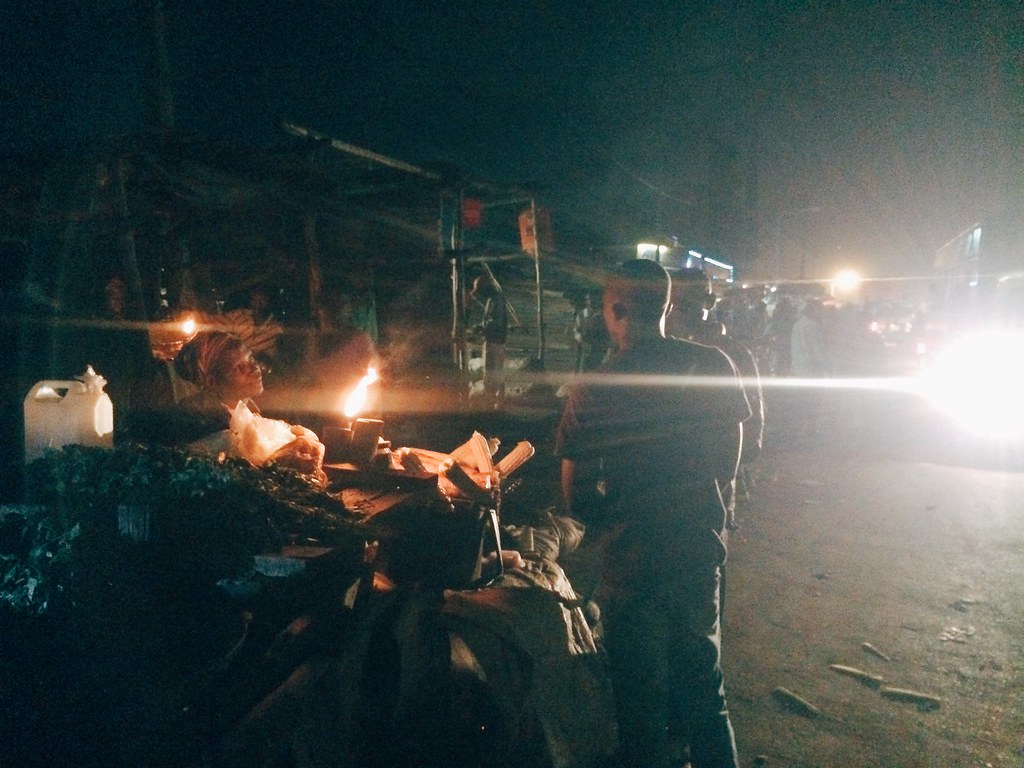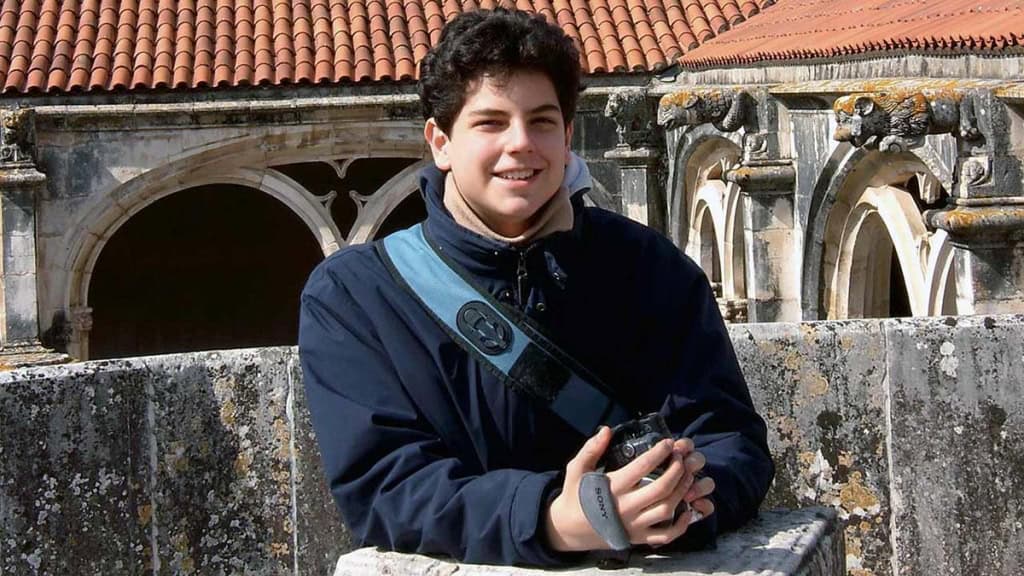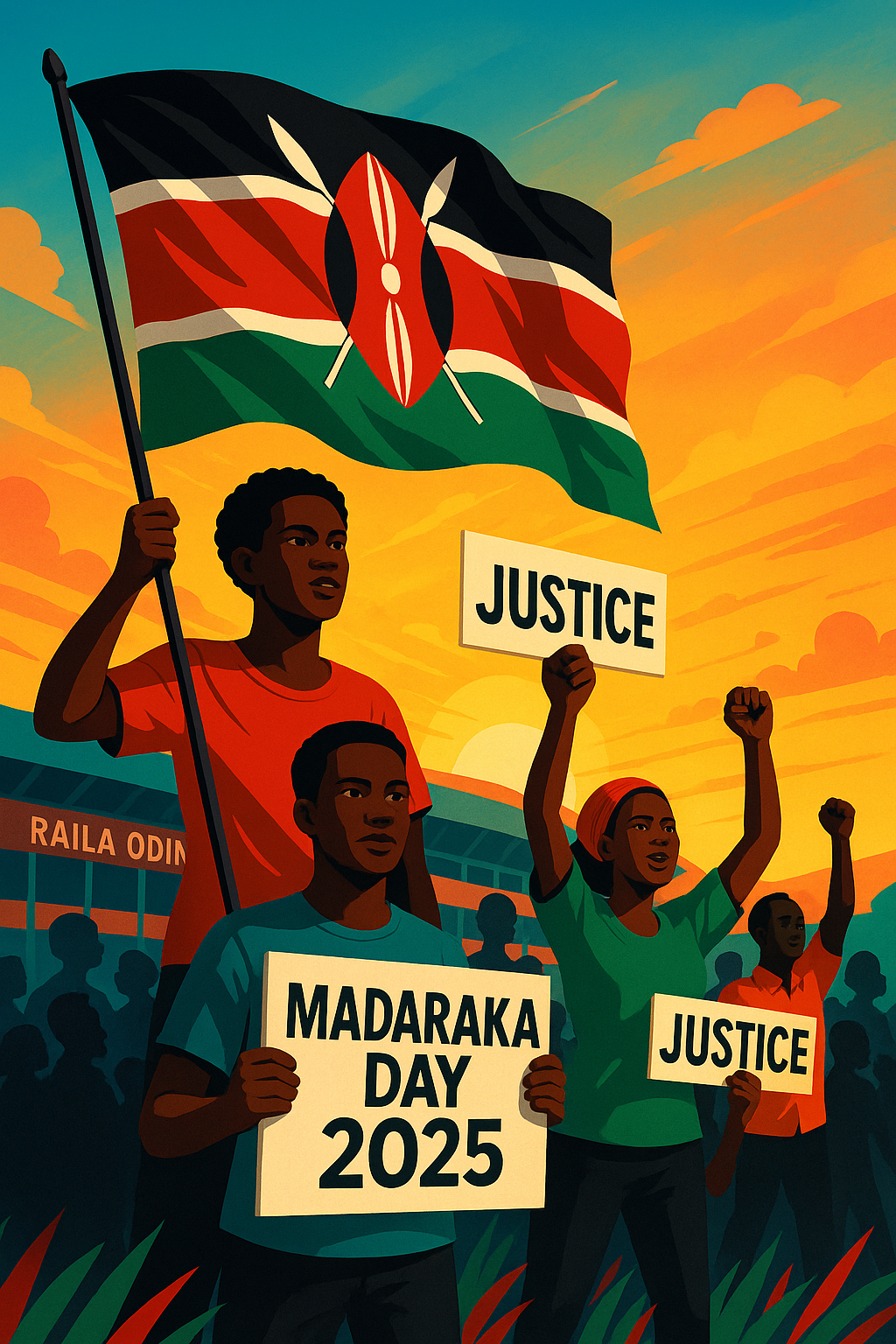On the night of April 28th, 2025, 23-year-old digital activist and influencer Kena Mwangi went live on Instagram during what was supposed to be a peaceful protest in Nairobi’s Umoja estate.
Her final words were:
“They’re here. Don’t stop recording.”
Moments later, her screen went black.
By morning, her body was found in a ditch near Pipeline, still wearing the “Stop Killing Us” t-shirt that had become a symbol of Gen Z defiance in the face of police brutality.
The autopsy would later cite “blunt force trauma and internal bleeding.”
Her phone was never recovered.
But the livestream—partially recorded by thousands—spread like wildfire. What it captured was chaos: gunshots, screams, and what sounded like uniformed boots.
Her death ignited the country.
A Voice That Grew Too Loud
Before she became a hashtag, Kena Mwangi was just another girl with a cracked iPhone and a borrowed ring light.
She started out doing lighthearted content: dance trends, skincare routines, and unfiltered commentary about Nairobi life. But that changed in 2021, during the height of COVID curfews, when she filmed police violently harassing a mama mboga in Umoja.
That shaky video, captioned “Sisi ni binadamu pia,” changed everything. It went viral, and so did she.
From then on, Kena stopped being just an influencer—she became a citizen journalist, covering stories no newsroom dared touch. From evictions in Mukuru Kwa Njenga to teargas in Mathare, Kena became a digital frontline reporter. She had no press card, no official title—just courage and a phone.
By 2025, she had over 1.2 million followers and a fast-growing Telegram channel called Kena Nation, where she posted raw, unedited footage of state violence, corruption, and everyday injustice.
But her rising influence came at a price.
Under Surveillance
Kena had always joked about the “state watchers,” even as her videos gained traction. But in private, she was worried.
She told friends about shadowy DMs warning her to stop recording. About strange friend requests from zero-follower accounts. About an unmarked Subaru Forester that seemed to follow her around Umoja.
In early April, she tweeted:
“If I ever disappear, just know it wasn’t an accident. #RecordEverything.”
She wasn’t paranoid. She was a target.
Two weeks later, she was dead.
The Protest That Turned Fatal
The protest she was covering that night wasn’t her first. It had been organized by university students and activists from Mukuru and Kayole, pushing back against a newly signed government housing bill that would demolish informal settlements to make way for high-rise apartments no one could afford.
Kena was there, documenting.
Her livestream, which started at 7:48 PM, showed a calm but tense crowd gathered near a petrol station. Protesters chanted, “Haki yetu!” as Kena narrated in real-time.
But then, gunshots. Screams.
The camera shook. Sirens howled in the distance.
Kena’s last words—“They’re here. Don’t stop recording.”
Then: silence.
From Phone Screens to Pavements
By dawn, the streets were painted with rage. The hashtag #JusticeForKena trended across Kenya. Nairobi University students marched to Parliament Road. Demonstrators in Mombasa, Kisumu, and Eldoret held night vigils. For once, Gen Z, Gen X, and Gen Wote spoke with one voice.
Her face, framed by a digital filter of angel wings, was printed on t-shirts and spray-painted on city walls.
Meanwhile, government officials remained silent.
The System Behind the Silencing
Behind the uproar, a darker truth was unraveling.
Leaked documents from an anonymous whistleblower later revealed a covert digital surveillance program called “Nyati”—a partnership between Kenya’s cybercrime unit and foreign data firms aimed at tracking “influential voices posing national security threats.”
Kena’s name was on that list.
The program used facial recognition software to map protest activity in real time. It flagged influencers like her as “amplifiers”—people whose content could spark civil unrest. The directive? Monitor. Isolate. Neutralize.
The Ministry of Interior denied the existence of Nyati, calling it “urban propaganda.” But activists insist the program is real—and Kena’s death was no accident.
Her Family, Silenced Too
Kena’s mother, Mama Wairimu, a domestic worker, has refused interviews since the burial. Sources say she was visited by unnamed men who “advised” her to let her daughter’s story go for the sake of family safety.
She now lives upcountry. Her daughter’s Instagram account was deactivated days after the funeral. No explanation was ever given.
Kena Nation Lives On
Though the government may have tried to erase her, Kena Nation didn’t die with her.
A small team of young activists has since relaunched her Telegram channel under the same name, sharing stories from Kenyans across the country—evictions, police excesses, corruption. Unfiltered. Unapologetic. Undeniable.
At protests, her slogan now lives on:
“Don’t stop recording.”
Final Thoughts
Kena Mwangi wasn’t the first Kenyan to die while demanding justice.
But she may be the first whose death was seen—live—by an entire generation.
And that changes everything.
In a country where the camera is often the only shield the poor have, the lens is now both a weapon and a warning. The state may silence voices, but it cannot silence a screen that has already burned into our minds.
She showed us what courage looks like.
And what it costs.
📌 Disclaimer
This article is a work of fiction inspired by real social and political tensions in Kenya. While the characters and events are fictional, they are designed to reflect the lived experiences, fears, and conversations happening across the country. Any resemblance to actual persons, organizations, or events is purely coincidental. The intention is to provoke thought and dialogue—not to accuse or defame.
📢 #JusticeForKena | #Don’tStopRecording | #CamerasAndCoffins




